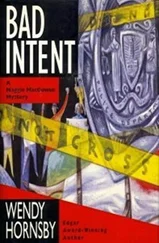“Monsieur le consul general of San Francisco?”
“Oui.”
He lifted one shoulder, pretending to be studying a painting. “We did le swap. He is in Los Angeles tonight at the opening of a French film.”
“Le swap, huh?” I said, putting my palm against his cheek and turning his face toward me. “When did this come about?”
He made a moue, trying to hide a smile. “It took two days to negotiate with my colleague, but the deal was sealed day before yesterday, just before I called you. I thought an evening out would be a nice break for you. All I had to do was persuade my colleague that he would enjoy spending an evening with some film stars more than he would an evening with Monsieur Matisse.”
“Et voilà,” I said.
“Yep.” He kissed me quickly.
M. Matisse’s opening drew an interesting collection of local luminaries, both political and social. I ran into an old friend from my days working at KQED, the PBS outlet in San Francisco. We had a good catch-up conversation while Jean-Paul took care of some official duties. He made a charming short speech in two languages, thanking various dignitaries for their support, and hanging medals around the necks of some of the people responsible for mounting the exhibit in furtherance of Franco-American friendship. Or something.
As he escorted me in to dinner, he put his head close to mine and said, “There is a bit of a stir among the Centre Pompidou staff about your dress.”
“What? This old rag?”
“Exactly.” There was a mischievous glint in his eyes. “I was asked-accused might be a better word-of having the dress lent to you for the evening out of the couturier’s archival collection.”
“And you told them?”
“That I know nothing about such things, which is the truth.” We found our seats and he held my chair for me. “But, if you don’t mind, what is the provenance of la belle robe ?”
“I found it in Mom’s closet yesterday after I spoke with you. I hadn’t brought evening attire with me.”
“Of course,” he said, taking his seat beside me. “She perhaps acquired it at the couturier’s shop during a trip abroad?”
“Hardly,” I said. I looked over and saw the staffers with their heads together, watching us. I smiled. “She bought it at a rummage sale.”
“What is that?”
“Like a brocante .” A French flea market.
He laughed, his gaze following mine to the little clutch of curious women. “Let’s tell them nothing.”
Afterward, as we rode together in the backseat of the Town Car, headed across the Bay Bridge toward Berkeley and the work that awaited me there, I felt a bit like Cinderella after the ball. Except that Prince Charming was riding in the coach with me.
Jean-Paul was quiet, looking out his window at the play of lights on the water below us. The Bay Lights installation was still up, twenty-five thousand LED lights illuminating the length and height of the west span of the Bay Bridge. It was dazzling, but I’d had a very bad night before and a very long day, and the car was very plush, so I was struggling to keep from nodding off. When Jean-Paul took a deep breath and cleared his throat, I came to a bit, wondering if perhaps I was about to find out why he had gone to all the trouble to arrange le swap. He broke the silence with a question.
“Has your network come across with funding for your film in Normandy?”
“Not yet,” I said. “My producer wants it, but the network hasn’t, or won’t, approve a budget.”
“What is the hold-up?”
“I think it’s me,” I said, patting the flesh under my chin. “Jean-Paul, I am old for television.”
He folded my hand into his. “In Europe, a woman your age would just be coming into her own.”
“Maybe,” I said, “if her own wasn’t a career in front of a camera.”
He tipped his head slightly to one side, acknowledging that what I said could be correct. He asked, “Perhaps the issue is the cost of making a film abroad?”
“Not if I can shoot the film I want,” I said. “The heart of the project will be conversations with my grandmother at the farm in Normandy during harvest, and then at her Paris home late in the fall. To keep the point of view at an intimate level the only crew I need is a cameraman.”
“Guido?” he said.
“Yes. Guido and I can do this one alone, the way we did field reports when we were still covering news stories together. Because we will stay with Grand-mère and we don’t need a big crew, the production costs will be minimal. But if we don’t get funding soon, we’ll miss the harvest this year. Grand-mère is ninety-three. Next year may be too late.”
“If the network does not come through, would you go ahead with the film if an alternate source of funding could be found?”
“If I could come up with both funding and a distributor I would certainly give it some serious thought,” I said.
“May I make inquiries?”
I tried to read his expression as freeway lights danced across his face. “Why do I think that line is the opening gambit for something?”
He laughed when I defined gambit; though his English seemed flawless, occasionally a word or its use would stump him.
“All right, yes,” he said. “I am caught.”
“So?”
“I have some contacts,” he said. “Perhaps, if you approve, I could make some calls.”
“Of course. Thank you.” Something was up. I could hear it in his voice. “What am I missing?”
“Maggie, you know I am nothing except a businessman who accepted a political appointment to serve as consul general.” When I acknowledged that I did, he said, “On the other hand, the consul general here in San Francisco is a career diplomat. His appointment to San Francisco is a stepping stone for him. But for me? Well, I am an interloper. What do you say, a temp?”
“Yes,” I said. “You’ve told me.”
“If I were at all political, and I am not, I would have been recalled a long time ago so that a true diplomat could take over. But, the new administration has been kept very busy, crisis after crisis. As there has been no emergency to handle in my assigned region, and I have managed not to disgrace my country and have actually been of some small service, I have been left in place.” He turned and gave me a pointed look. “I have been here far longer than I expected to be.”
“Have you been recalled to France, Jean-Paul?” I asked, dreading the answer.
“Not yet,” he said. “But I understand that it will happen.”
“When?”
He wrapped an arm around me and pulled me close. “After the summer holidays, perhaps. When the government goes back to work.”
“How do you feel about that?”
He raised his shoulders, frowned. “My son received his exam results.”
“Yes?”
“Dom qualified to enter the preparation course for admission to the grandes écoles ,” he said.
“Congratulations,” I said. This was big news, indeed. Very few French students pass the baccalauréat exams at the level necessary to qualify for the nation’s premier public universities. The bombshell here was that, having qualified to prepare for the grandes écoles , seventeen-year-old Dominic would not be finishing high school in Los Angeles. And I doubted his father was ready to send him back to France, alone. “When do his classes begin?”
“In September.”
“Ma’am?” The driver, Rafael, interrupted the dark pall that settled over the car after Jean-Paul’s announcement. “Were you expecting someone?”
I looked up as we slowly came to a stop at the curb in front of Mom’s house. A man sat on the top step, holding a baseball bat across his knees.
Читать дальше












